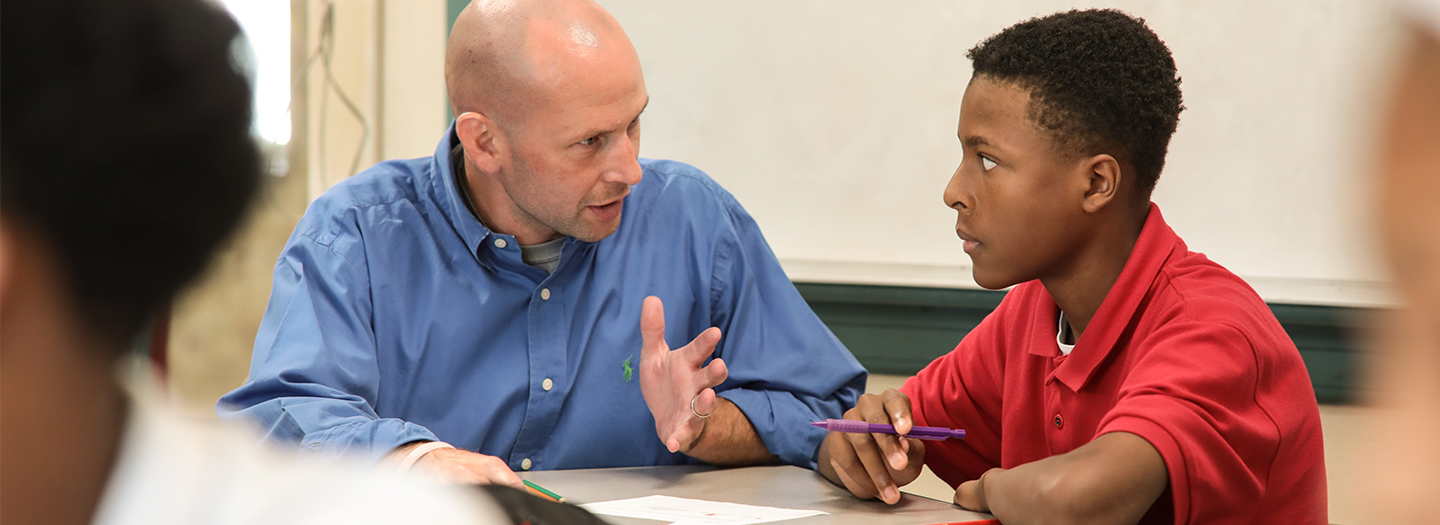Adventures in IB: Learning to communicate through Math
November 13, 2020

Learning to communicate through Math: Analysis and Approaches
The world we live in is continuously changing, and education needs to prepare students to navigate those challenges inherent in constant change. IB math offered at Purcell Marian recognizes the need for analytical expertise in a world where innovation is increasingly dependent on a deep understanding of mathematics.
The curriculum components include number theory and algebra, functions, geometry and trigonometry, statistics and probability, and calculus. IB math is more than numbers. In addition to developing an understanding of the concepts, principals, and nature of math, two additional aims enable students to do the following:
- appreciate the moral, social, and ethical questions arising from the work of mathematicians and mathematics applications
- take action to apply and transfer skills to alternative situations, other areas of knowledge, and future developments in their local and global communities
Success in IB Math is more than knowing how to add, subtract, divide, and multiply. Some students believe that they have to get the right answer the first time, every time. The keys to success include refusing to give up, using the resources available, being an advocate for yourself, and realizing you don’t have to get it right the first time, every time. Flexible thinking is required. It’s about being comfortable with being uncomfortable.
IB Assessment vs AP
The ability to solve problems is at the heart of math, but it’s much more than computation. IB math class requires students to solve non-routine, open-ended, and real-world problems. The Internal Assessment or Math Exploration is what differentiates IB from AP. Students have 15 hours over their senior year to complete the Exploration, a report written by the student, based upon a topic of their choice. The emphasis is on mathematical communication (including formulae, diagrams, graphs, etc.), accompanying commentary, good mathematical writing, and thoughtful reflection. A list of titles of Explorations completed by students in other IB schools for the Internal Assessment includes the following:
- Economic development and levels of income
- Statistics on flight information for an international airline
- Costs of products bought online compared to local grocery stores
- Earthquakes–can they be predicted?
- Florence Nightingale and modeling the spread of disease
- Does the electoral college in the US genuinely represent the political choice of the people?
- Gender-based discrimination
- Relationship between income inequality and the rate of corruption in a country
- Factors affecting athletic performance
- Video games and response times
- Running late and driving habits
An international team of IB educators evaluates the External Assessment at the end of the two-year course.
Perspectives on: IB Math
Leo Hennegan, Class of 2022
IB Math has challenged me to go into more depth solving equations and finding solutions. It has challenged me to find answers and prove how I could see those solutions by showing all the steps needed in solving. Some risks I have taken in IB Math include attempting to find solutions to problems I am not familiar with and explaining my reasoning to the class on how I found my answer. The good thing about these risks is that I can communicate with my classmates and my teacher to find the correct solutions.
There have been countless times when I have not understood the lesson and felt too shy to ask questions for a better understanding. IB Math has brought me out of my comfort zone and has enabled me to ask many questions to understand better how to find solutions and why they are the correct solutions. I have been able to develop more effective communication skills through the IB Math class.
Math has a deeper meaning than just being able to solve problems. Math is important because it forces you to work through difficulties in finding solutions. It also allows you to improve your intellectual ability to create reasoning and proof for your answer. Many jobs don’t require an understanding of math, but completing the class will help you solve more than just equations.
Stay positive, and do not give up. Work through difficult situations, and do not be afraid to ask for help so you can ensure a better understanding. If you find yourself struggling, don’t doubt yourself; just keep trying to find new ways to succeed and use reliable resources, including your teachers, for assistance. Don’t be afraid to show your mistakes because the only way you can improve your math skills is to find your areas of weakness and practice.
CLASS SURVEY
Why did you decide to take IB Math?
“To earn college credit and be prepared for a higher level of learning.” - Malaki
What challenges are you looking forward to facing?
“Learning to solve more advanced math and developing new skills from it.” - Leo
What risks do you think IB Math will ask you to take?
“Trying new things that I never really thought were possible and speak more in class." - Charisma
“Prioritizing time to take care of homework and classwork.” - Josey
Advice for students considering the IB math class?
“Take good notes and look over them daily. Ask questions to fully understand the lesson." - Leo
“Stay on top of the work and never get behind. Do your best and never give up.” - Charisma
“Make sure that you study for everything, pay attention in class, and complete all work ahead of time. Never wait until the last minute to finish anything because that is when you end up slipping up and falling behind. Always strive to get the highest grade possible. Keep a constant mindset of trying to be your best.” - Malaki

